We all know what our four-legged friends can be like around food, but while some everyday grub is harmless if your pup consumes it, there are toxic foods for dogs, and some can even be fatal if ingested by your pooch. It is best for your dog’s main diet to be their regular complete dog food. Whether that is wet food, dry food, or something more specialist, but we know that opportunistic pups will often pounce whether the nosh is meant for them or not - or good for them or not!
With the help of Veterinary Surgeon at Pooch & Mutt, Dr Linda Simon, we look at what human food dogs can eat, the most common poisonous foods for dogs, the signs of food poisoning in dogs and what to do if your pooch eats something that is toxic to them.
What human foods are toxic to dogs?
Below Dr Linda Simon talks through toxic food for dogs, and the potential symptoms and health implications they can cause if ingested.
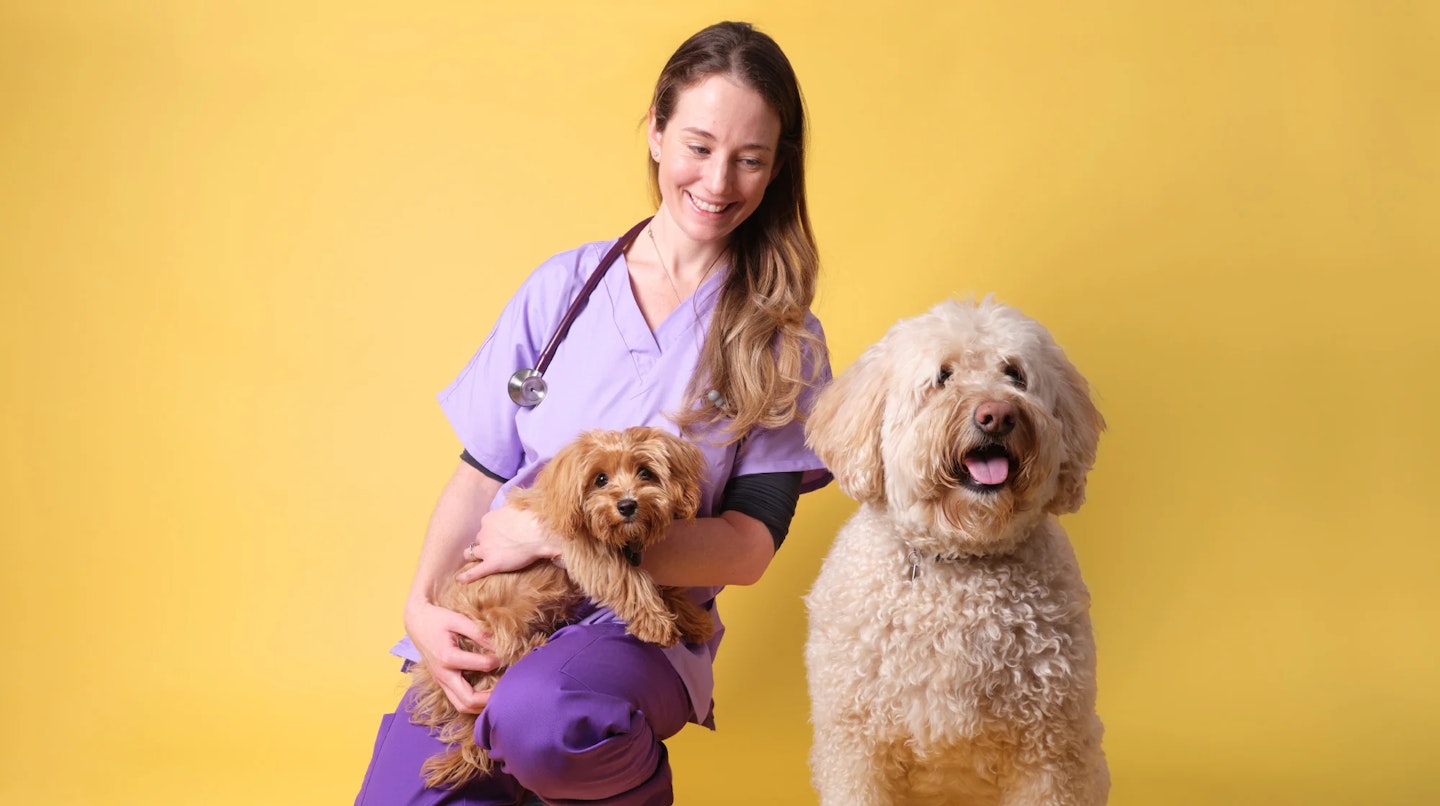
Garlic
Garlic is used in so many of our dishes - sauces, marinades, oils, and tons more. This favourite ingredient is toxic to our dogs and can cause gastrointestinal irritation and red blood cell damage. This can make your pooch very sick.
Onions and chives
As above (they’re all part of the onion family), onions and chives are toxic and can cause gastrointestinal irritation and red blood cell damage too. As a popular garnish, it is important to be extra careful with what may fall on the floor and within your doggo’s reach.
Cooked bones
This is where people don’t realise the damage they’re doing, as dogs are usually encouraged to chomp raw bones safely. However, cooked bones are completely different. They easily splinter in the mouth and, in large quantities, cause constipation and perforation of the gut - which is extremely dangerous and can even be fatal.
Alcohol
Our ‘fun liquid’ is not so fun for our pets. Alcohol intoxicates our animals in the same way it does us but can lead to severe sickness, diarrhoea, and even central nervous system damage. You should keep all drinks off the floor and out of reach of your pooch.
Corn on the cob
A classic, healthy side that, when eaten by dogs, can cause blockages in the intestine. Anything but healthy, as blockages could turn fatal.
Avocado
Another toxic food for dogs, avocado plants contain an ingredient called Persin – found in its leaves, fruit, and seed. Persin can cause severe vomiting and diarrhoea in dogs, making them very poorly. Additionally, a pup may accidentally swallow an avocado pit, which can cause choking or a blockage.
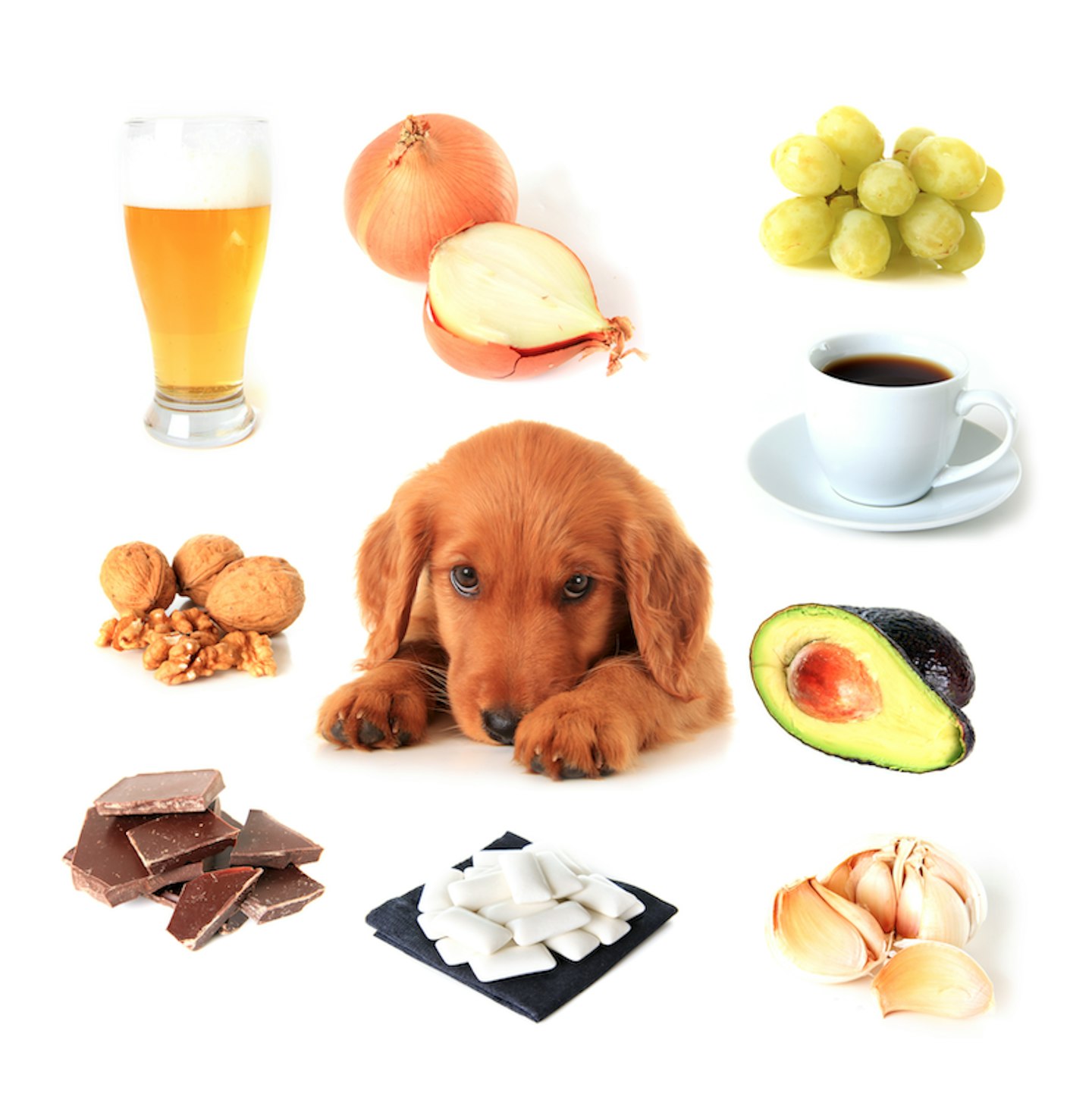
Chocolate
Found in many human sweet treats, chocolate should never be fed to dogs. You can get pooch-safe chocolate as an alternative, but the chocolate we know and love contains a stimulant called theobromine. The darker the chocolate, the higher the theobromine levels. This is toxic to our fur babies and can cause kidney failure.
Macadamia nuts
Quite often a Christmas ingredient, but around any time of year, Macadamia nuts are another poisonous food on the list. They contain a toxin that can affect your dog’s muscles and nervous system – which can cause weakness, swollen limbs and panting.
Grapes and raisins
Grapes and raisins can be found in couscous, salads, on a cheese board and in other foods and sweet treats. The active ingredient with toxic properties isn’t known, but these fruits can cause severe liver damage and kidney failure in our precious pooches.
Xylitol
Xylitol is an artificial sweetener found in loads of food we eat - like chewing gum. Although safe for us, your dog could go into hypoglycaemia if consumed. Hypoglycaemia is linked to liver failure and blood clotting disorders, so needs to be avoided at all costs. Initial symptoms — including vomiting, weakness, difficulty moving and seizures — can show within 30 minutes.
Other foods to keep out of reach of your dog include yeast dough (which can cause alcohol poisoning and severe bloating), bacon (as the high-fat level can lead to an inflamed pancreas – white bread should be avoided for the same reason), seeded/pitted fruits (as many of their seeds or pits contain small amounts of cyanide which can cause digestive issues), caffeine (which can speed up the heart rate and stimulate the nervous system) and dairy products (as most dogs are lactose intolerant so this can cause vomiting, diarrhoea, and other gastrointestinal problems).
What should you do if your dog eats poisonous food?
Act with urgency but try not to panic. It’s sensible to contact your vet straight away, who can offer their professional opinion. They’ll probably ask what they’ve eaten, in what quantity, and whether you’ve noticed any visible signs of distress. Give as much info as possible, so they can decide whether they want to check your dog over.
Your gut instinct will be to immediately help your dog. However, this could cause more harm than good. Always take your vet’s advice and bear the following in mind:
Don't attempt to treat or medicate your pooch yourself. Some medicines that work for us and other animals could be poisonous to dogs.
Don’t try to make your dog throw it up. Saltwater, especially, is extremely dangerous.
Keep poorly dogs away from other animals to avoid spreading any sickness.
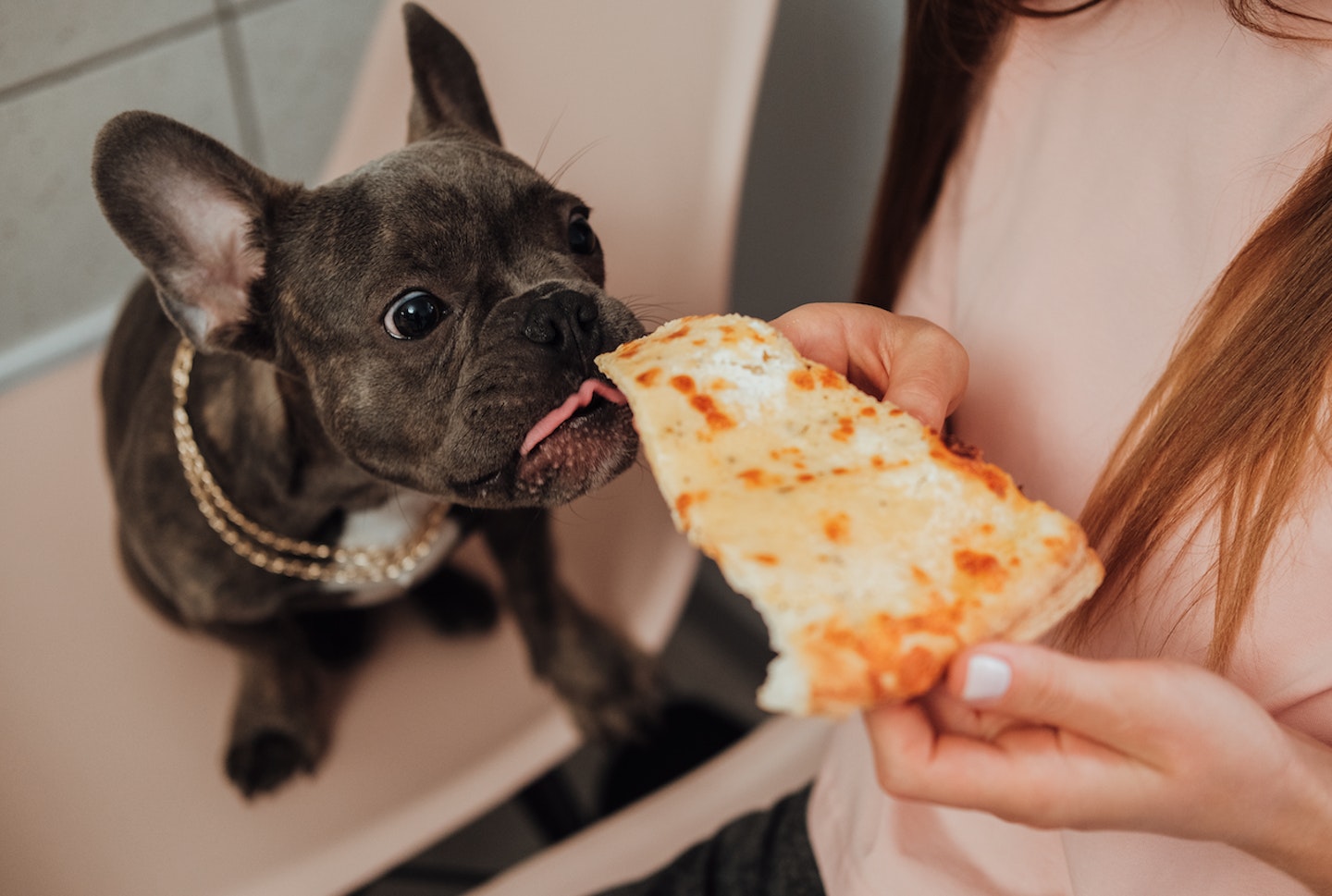
What are signs of food poisoning in dogs?
Your vet will share a list of symptoms to look out for, and some might follow a few days later. Here are a few they may mention:
Agitation
Excessive panting or drooling
Tremors or spasms
Swollen limbs
Nausea and/or vomiting
Seizures
Changes in heart rate
Diarrhoea
Severe thirst
Loss of bladder control
If you notice any of these, contact your vet straight away.
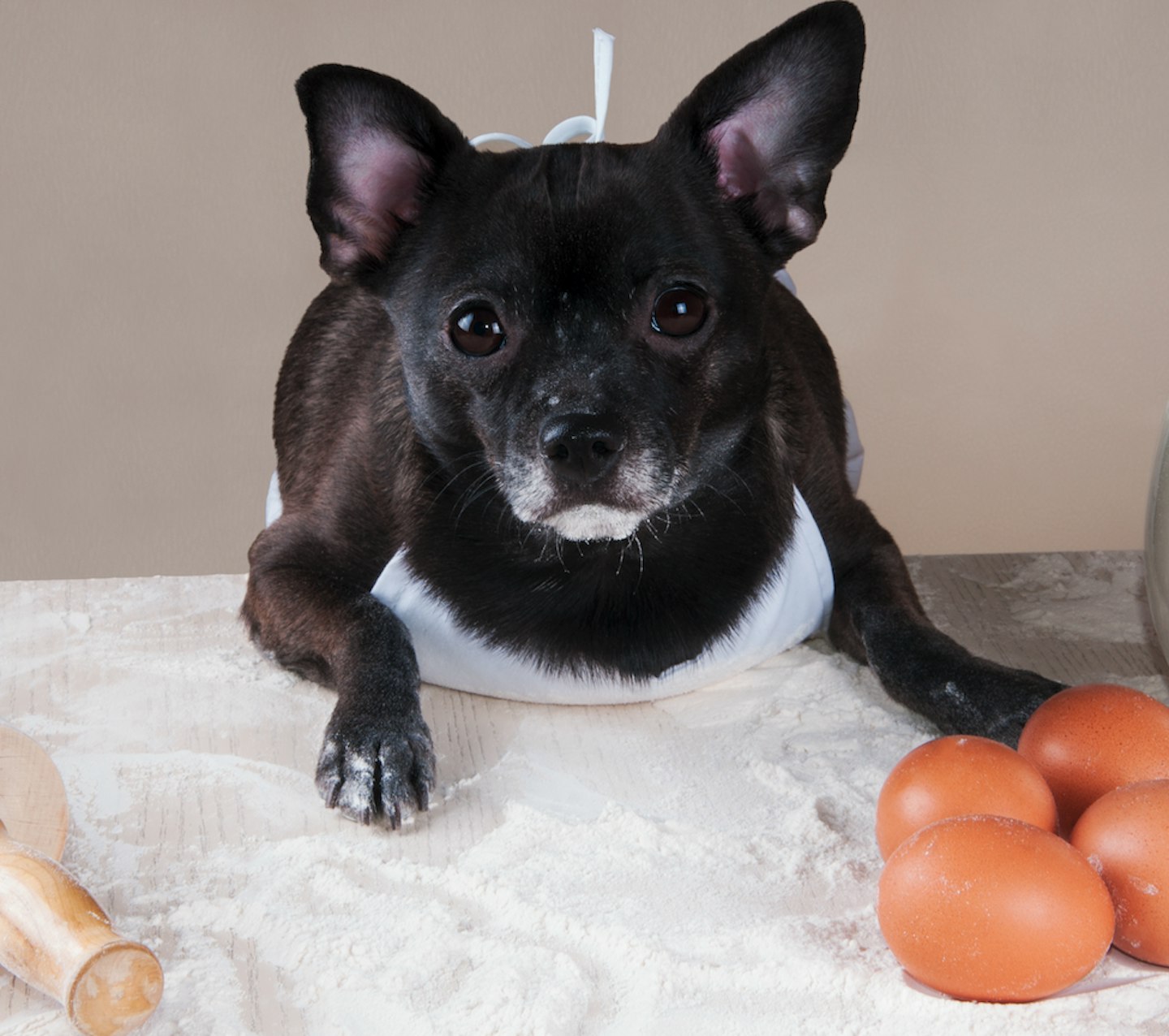
Below we answer your frequently asked questions about foods that can be harmful for dogs.
FAQs
What food can kill dogs instantly?
Eating human foods in unlikely to kill your dog instantly, but all of the foods listed above can cause serious problems – and even prove fatal – if they are ingested by your dog.
If you’re concerned your pooch has eaten something that could be toxic or exhibits any of the symptoms above, contact your vet right away.
Can too many treats kill a dog?
Generally, you should try to keep your pooch’s treat intake to 10 per cent of their daily allocated calories – maximum.
If you overdo it with dog treats it could lead to digestive issues and diarrhoea – and in the long term could cause your pup to become overweight.
Obesity in dogs is a major problem. Not only does it reduce their quality of life, but it also puts them at more risk of developing conditions such as diabetes, hypertension and cancer. In fact, a survey found that, on average, obese dogs have a shorter lifespan by two years.
So, while being over-generous with the treats now and again shouldn’t cause any major issues, doing it consistently could have serious – and potentially fatal – consequences. If your pup has piled on the pounds, consider dog food for weight loss to help them get back to their ideal weight.
Can dogs eat eggs?
Whether boiled, scrambled or sunny side up, dogs can eat cooked eggs – in fact, they are rich in protein, linoleic acid and fat-soluble vitamins, all of which are beneficial to your dog’s coat and skin. Keep in mind though, they should be viewed as a treat, and most dogs should not be given more than one full egg a day.
Raw or undercooked eggs should not be fed to dogs, because they can be a source of Salmonella.
Can dogs eat tuna?
Yes, dogs can eat canned tuna, but it should be given to them in moderation and only occasionally. Opt for tuna that’s in fresh water (rather than oil or salt water).
However, dogs should not be given raw tuna – or raw fish of any kind - as it may contain bacteria that could make your dog very unwell. Raw fish also contains an enzyme which stops vital vitamins from being absorbed (this enzyme is removed when the fish is cooked).
What human foods can dogs eat?
There are many human foods that are safe and even beneficial for dogs, though they should always be given in moderation.
The list includes: carrots, apples (but remove the core and seeds, and make sure they’re not rotten!), cooked plain white rice, plain boiled chicken, plain popcorn (make sure they don’t eat unpopped kernels), small portions of cooked pork (as it has a high fat content – and don’t feed dogs bacon or processed ham), blueberries, cucumbers (a great snack for overweight dogs) and watermelon (with seeds removed).
If your pooch has allergies, sensitivities or intolerances to grain, make sure to avoid rice, corn and alike and opt for a grain-free dog food that's kinder to their stomach.
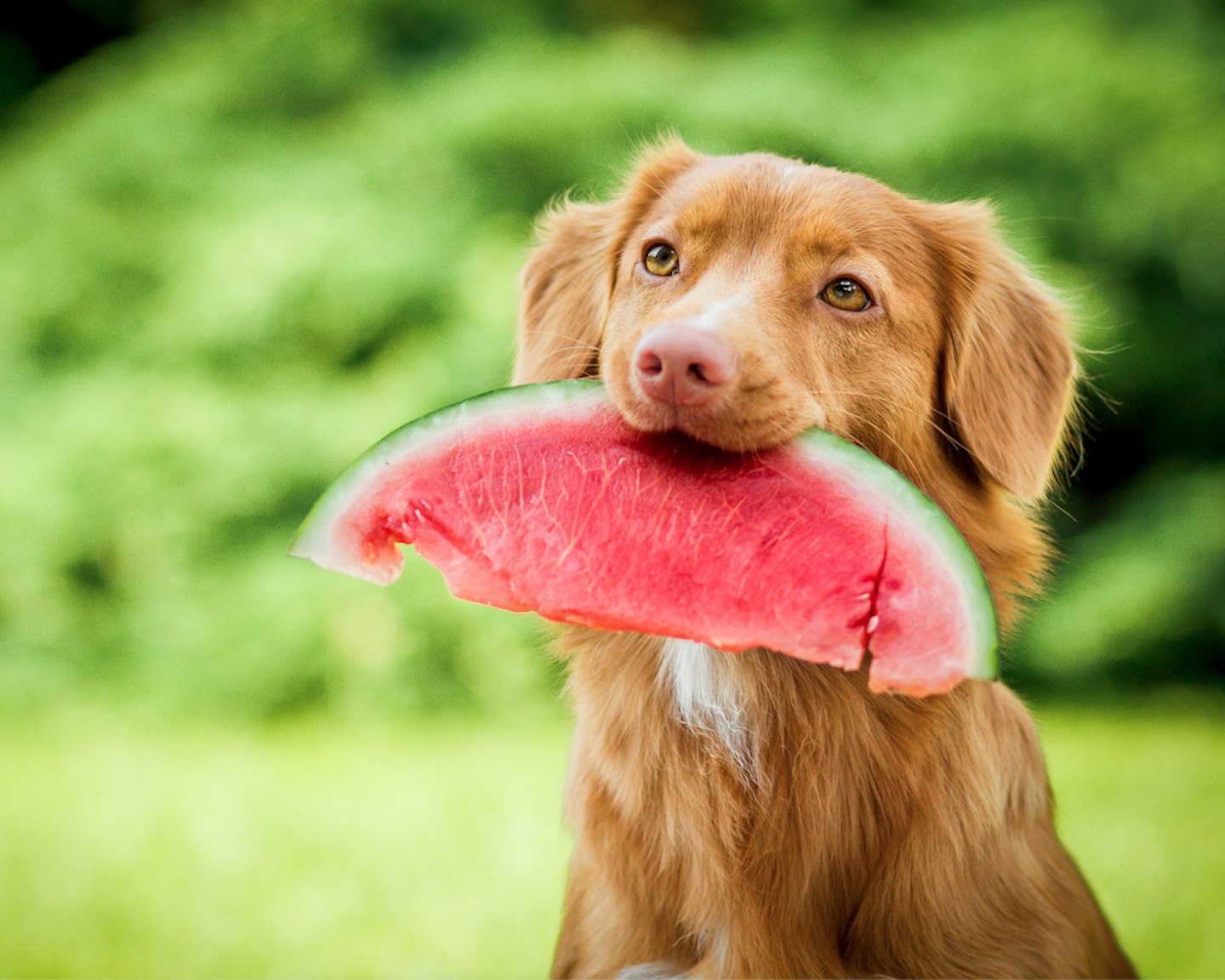
This article contains expert advice from Dr Linda Simon, Veterinary Surgeon at Pooch & Mutt.
Joe Brothwell is editor of Take a Break Pets and adores all creatures great and small. Despite being a doting cat dad to Winnie, she continues to be aloof!
